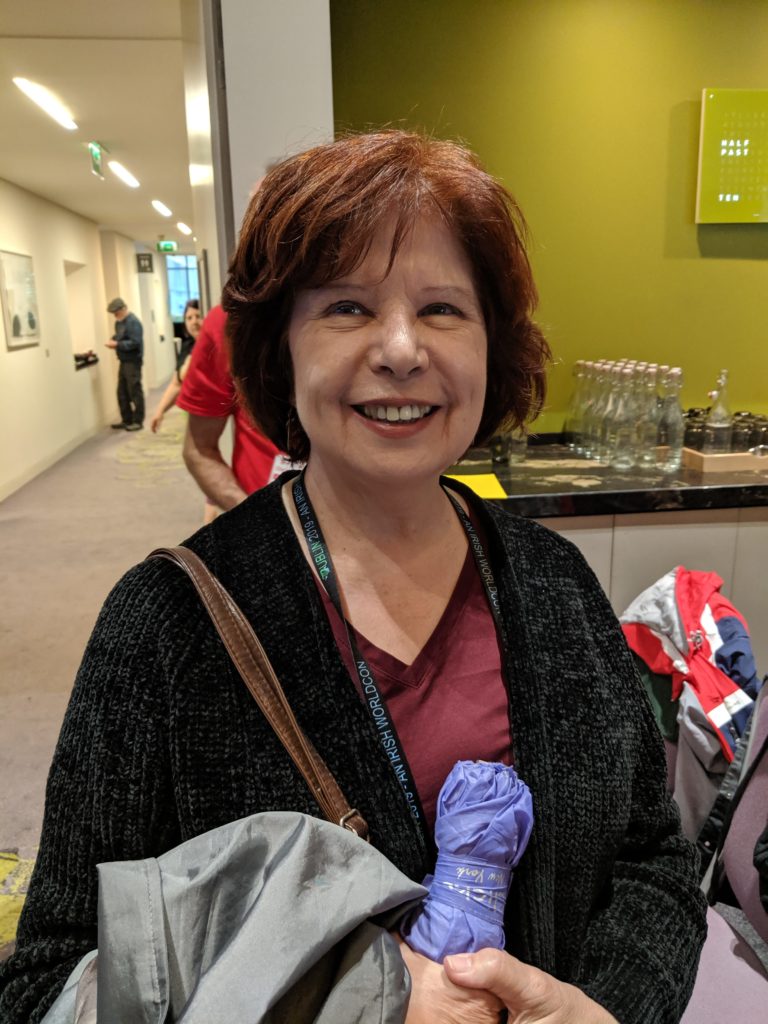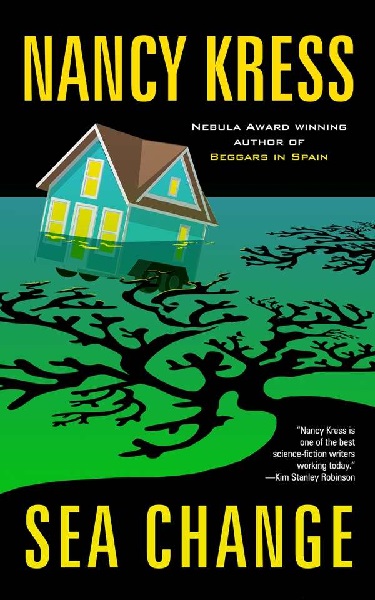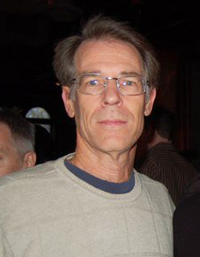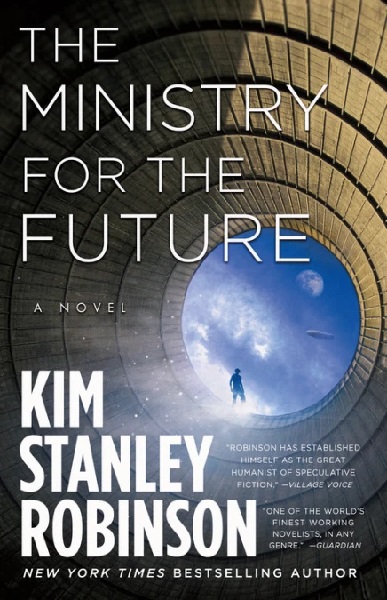By Mark L. Blackman: On the evening of Wednesday, July 21, (the 52nd anniversary of the first Moonwalk, depending on your time zone), the Fantastic Fiction at KGB Reading Series, hosted by Ellen Datlow and Matthew Kressel, presented two “heavy-hitters” (Kressel’s categorization), authors Kim Stanley Robinson and Nancy Kress, in livestreamed readings on YouTube. (This is the 17th month of virtual readings, in place of in-person reading at the eponymous bar in the East Village in Manhattan, to which they plan to return – Delta variant willing – in October.)
After some schmoozing among hosts and readers (Datlow is looking forward to having dim sum with a group), Kressel gave a précis of the Series, which started in the 1990s. (For details, about how to support the Bar and the Series – which, even under the current setup, incurs expenses – visit www.kgbfantasticfiction.org.) He then introduced the first reader of the evening.
Nancy Kress is the author of 33 books, including 26 novels (among them, The Sleepless Trilogy, which opened with Beggars in Spain), four collections of short stories and three books on writing, work for which she has won five Nebula Awards, two Hugo Awards, a Theodore Sturgeon Memorial Award and the John W. Campbell Memorial Award. Her most recent works include Yesterday’s Kin, The Eleventh Gate, and Sea Change, a stand-alone novella from which she read.

Nancy Kress 
Sea Change by Nancy Kress, art by Elizabeth Story
Sea Change centers on the genetic engineering of crops, The section that she read opens in 2032 Seattle, about a decade after the Catastrophe. It is a world of homelessness and hunger, of “wandering buildings,” of electronic surveillance and counter-surveillance, the latter by a rebuilt resistance movement, the Org, which is out to save the world from itself. A member of the Org, “Carol,” is assigned to meet a new recruit, who bears a resemblance to her late son.
There was a short break (during which they discussed really bad names for cider).
The second reader, introduced by Datlow, was Kim Stanley Robinson – Stan – a multi-award winner (Hugo, Nebula, Locus, BSFA and World Fantasy Awards) probably best known for his Mars Trilogy (Red Mars, Green Mars and Blue Mars) and The Years of Rice and Salt. His most recent novels are Red Moon and The Ministry for the Future, and it was from the latter that he read selections. He lives in Davis, California, but was coming to us from somewhere in Maine with a really lousy Internet connection. The audio came through, but not the video, so we were treated instead to a couple of photos of him. It looked like a really good ventriloquist act.

Kim Stanley Robinson 
The Ministry for the Future by Kim Stanley Robinson, art by Lauren Panepinto
As in Kress’s story, the novel is set in the near future, here the catastrophe being climate change after a big heat wave, seen through the eyes of Frank. (It’s not just the heat, it’s the humidity.) Jumping ahead to a decade later (and reading from the middle of the book), an international organization has grown out of the Paris Agreement nicknamed the Ministry for the Future, and its head, Mary Murphy, is meeting with bankers. For decades, they’ve shorted civilization and wealth has shifted to them, and they’ve become the world’s not so secret government.
Since the book was published last year, Robinson shared, he’s been reading from nine set pieces; but because we’re the Fantastic Fiction at KGB Reading Series, he decided to read from near the end (from Chapter 103 of 106), “after the bend in the arc of history is accomplished, following the sturm und drang.” He wanted to write “a best case scenario.” On one night, four billion people tap their phones and express their love of Mother Earth in “a worldwide lovefest.”
A Q&A session with the authors followed. (Datlow is working out the logistics on having a Q&A, as I suggested, when they return to the Bar.) Datlow asked Robinson, “How can you be so optimistic?” He replied that his mother was; she felt that it was our duty to be optimistic and to help people.
Kress was asked how she got into teaching writing. She said that she’s always been a teacher; she began teaching 4th Grade, and later college. (Kressel used one of her books on writing in a course that he took at the New School.) She was next asked why she sets so many of her stories in the near future. She answered that it’s “easier,” that she doesn’t have to create “an entirely different world society,” just “an intensification of the present,” such as food insecurity issues and genetic engineering, and it’s “a natural jumping-off point for conflicts.”
A viewer remarked that climate change has taken over sf. (I’ve even seen the acronym “cli-fi.”) Robinson observed that the Pandemic has reminded us that we’re all on one planet, and spoke about the need for renewable energy. Kressel noted that older workers who’ve been in one industry their whole life and face job loss tend to oppose new and unfamiliar renewable energy. Talk turned to CarbonCoin and decarbonization, paying people and businesses to do “good green work” and keep carbon in the ground. Robinson added that CarbonCoin wouldn’t be a cryptocurrency, but would have to be real, backed by a real currency. (He opined that the Biden Brain Trust is the best one since FDR, but it needs to communicate better.) Corn, said Kress, needs to be helped along to feed people. We’ve always hybridized plants, stated Robinson; he thought that objection to GMOs is really objection to Monsanto owning genomes.
Responding to a related question, Kress said that she writes so much about genetic engineering because “it’s here.” (At a previous Fantastic Fiction reading, she observed that genetic engineering is the wave of the future, as well as fascinating to her personally.)
Robinson was asked about his use of bureaucracy. Well, his wife is a bureaucrat, and bureaucracy may be interesting; accordingly, he takes time and goes on at length to build his extensive bureaucracies.
Both authors write characters who don’t look like them, led off another question. They consult friends about details; Robinson pointed out that writers need freedom to write about “The Other” or their stories “would be very dull.”
Robinson then told Kress that he found Beggars in Spain “scary” because he’s an insomniac. (Note: Despite her being based in Seattle, the Sleepless Trilogy did not inspire a certain rom-com.) Kress admitted that she needs her sleep and is “jealous” of people genetically engineered not to need sleep; how much more they can get done!
Finally, what’s next; what are they working on? Kress apologized; she doesn’t talk about work in progress. Robinson, surprisingly, is working on a nonfiction book about hiking the Sierras; the title will be The High Sierras: A Love Story.
All were looking forward to a good night’s sleep.
Upcoming readers are:
- August 18 A.C. Wise & David Leo Rice
- September 15 Mari Ness & Ellen Klages
On October 20th, the Series will be back in person at the KGB Bar! The readers will be Michael DeLuca and Daryl Gregory.
Discover more from File 770
Subscribe to get the latest posts to your email.
